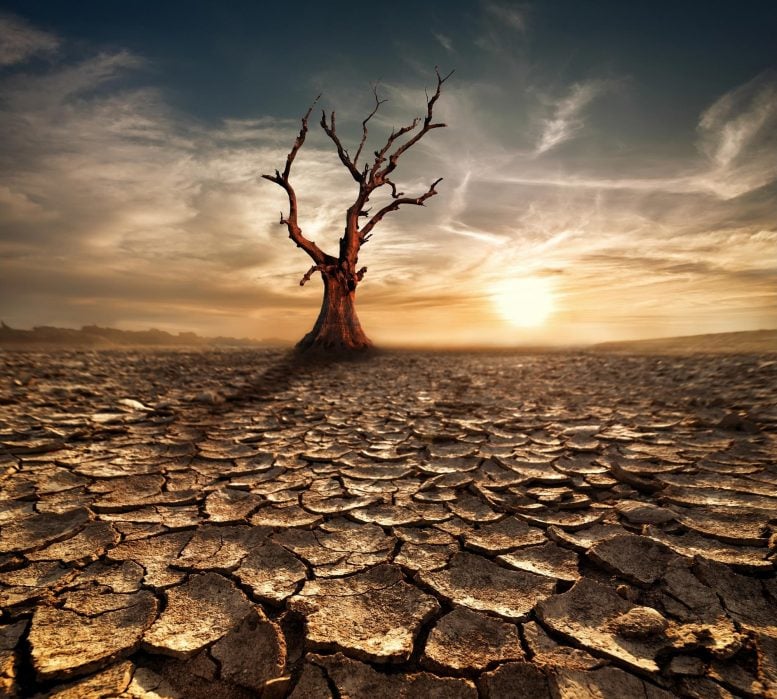Scientists Declare Climate Emergency: Earth’s Vital Signs Worsen Amid Business-As-Usual on Climate Change

Scientists reaffirm 2019 climate emergency declaration and again call for transformative change based on updated trends.
In 2019, a coalition of more than 11,000 scientists from across the globe declared a climate emergency and established a set of vital signs for the Earth in order to measure effective climate action. Now, twenty months later, a new study published on July 28, 2021, in BioScience finds that those vital signs reflect the consequences of unrelenting “business-as-usual” on climate change.
Specifically, authors of the study note an unprecedented surge in climate-related disasters since 2019, including devastating floods, record-shattering heat waves and extraordinary storms and wildfires. 2020 was the second hottest year in history, with the five hottest years on record all occurring since 2015. The study also notes that three key greenhouse gases — carbon dioxide, methane, and nitrous oxide — set records for atmospheric concentrations in 2020 and again in 2021. In April 2021, carbon dioxide concentration reached 416 parts per million, the highest monthly global average concentration ever recorded.
In response to these unprecedented findings and the ongoing climate crisis, the study calls for a phase-out of fossil fuels; strategic climate reserves for the storage of carbon and the protection of biodiversity; and a global price for carbon high enough to induce “decarbonization” across the industrial and consumption spectrum.
“The extreme climate events and patterns that we’ve witnessed over the last several years — not to mention the last several weeks — highlight the heightened urgency with which we must address the climate crisis,” said Dr. Philip Duffy, co-author of the study and Executive Director of the Woodwell Climate Research Center. “Without a plan for rapid decarbonization and large-scale investments in natural climate solutions, these climate change indicators will continue to worsen, pushing our essential ecosystems past the point of recovery.”
Other key vital signs the authors highlight:
- The total burned area in the United States increased in 2020, reaching 4.1 million hectares — the second most ever recorded.
- Brazilian Amazon annual forest loss rates increased in both 2019 and 2020, reaching a 12-year high of 1.11 million hectares deforested in 2020.
- Ice sheets in Greenland and Antarctica have continued their precipitous loss of mass, while Arctic sea ice extent continues to decline to near all-time lows each summer.
- Ocean acidification is near an all-time record. Together with thermal stress, it threatens the coral reefs that more than half a billion people depend on for food, tourism dollars and storm surge protection.
“There is growing evidence we are getting close to or have already gone beyond tipping points associated with important parts of the Earth system, including warm-water coral reefs, the Amazon rainforest and the West Antarctic and Greenland ice sheets,” said Dr. William Ripple, a lead author of the study and distinguished professor of ecology at Oregon State University (OSU). “We need to quickly change how we’re doing things, and new climate policies should be part of COVID-19 recovery plans wherever possible. It’s time for us to join together as a global community with a shared sense of cooperation, urgency and equity.”
Reference: “World Scientists’ Warning of a Climate Emergency 2021” by William J Ripple, Christopher Wolf, Thomas M Newsome, Jillian W Gregg, Timothy M Lenton, Ignacio Palomo, Jasper A J Eikelboom, Beverly E Law, Saleemul Huq, Philip B Duffy and Johan Rockström, 28 July 2021, BioScience.
DOI: 10.1093/biosci/biab079
Christopher Wolf, of OSU, led on the study with Dr. Ripple. The study was also co-authored by Dr. Duffy; Jillian Gregg and Beverly Law of OSU; Thomas Newsome of the University of Sydney; Timothy Lenton of the University of Exeter; Ignacio Palomo of the University of Grenoble Alps; Jasper Eikelboom of Wageningen University and Research; Saleemul Huq of Independent University Bangladesh; and Johan Rockström of the Potsdam Institute for Climate Impact Research.
No comments:
Post a Comment